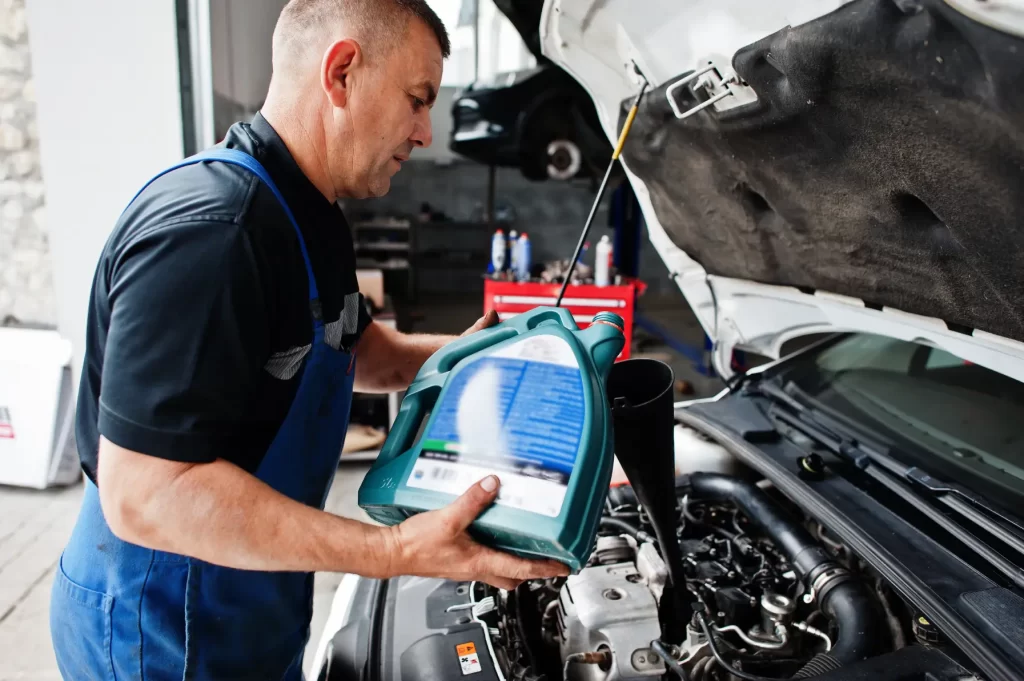
Effective fleet vehicle maintenance is important for businesses reliant on transportation. It not only ensures optimal vehicle performance but also enhances safety, reduces operational costs, and maximizes asset lifespan. Let’s delve into key aspects of fleet maintenance, providing insights for fleet managers and business owners.
Understanding the Importance of Fleet Maintenance
Neglecting fleet maintenance can lead to a cascade of problems, including:
- Increased breakdowns and downtime: Unexpected vehicle failures disrupt operations and lead to financial losses.
- Higher repair costs: Preventive maintenance often costs less than emergency repairs.
- Reduced vehicle lifespan: Proper maintenance extends the life of your fleet vehicles.
- Safety hazards: Malfunctioning vehicles pose risks to drivers, passengers, and other road users.
- Environmental impact: Well-maintained vehicles often have better fuel efficiency, reducing emissions.
Building a Robust Maintenance Program
A comprehensive fleet maintenance program should include the following elements:
- Preventive Maintenance Schedule: Develop a detailed schedule based on vehicle type, usage patterns, and manufacturer recommendations. This should encompass regular oil changes, tire rotations, brake inspections, fluid checks, and more.
- Vehicle Inspection Checklist: Create a thorough checklist for pre-trip and post-trip inspections to identify potential issues early.
- Driver Training: Educate drivers about vehicle care, including proper driving techniques, load management, and reporting maintenance concerns.
- Maintenance Records: Maintain accurate records of all maintenance performed, including dates, services, and costs. This data is invaluable for tracking vehicle performance, identifying trends, and optimizing maintenance schedules.
- Parts and Inventory Management: Efficiently manage parts inventory to minimize downtime and ensure availability.
Key Maintenance Areas
- Engine Maintenance: Regular oil changes, filter replacements, coolant checks, and tune-ups are essential for engine health
Call Slick Mobile Oil to Schedule Your Next Fleet Oil Change and Filter Replacements
- Brake System: Inspect brake pads, rotors, calipers, and fluid levels regularly to prevent brake failure.
- Tire Care: Monitor tire pressure, tread depth, and alignment to improve fuel efficiency and safety.
- Electrical System: Check battery health, lights, and other electrical components for optimal performance.
- Suspension and Steering: Inspect for wear and tear to ensure vehicle stability and handling.
Choosing the Right Maintenance Provider
Selecting the right maintenance provider is crucial. Consider the following factors:
- Expertise: Ensure the provider has experience with your fleet type and size.
- Services Offered: Look for providers offering a comprehensive range of maintenance services.
- Location and Accessibility: Choose a provider conveniently located for your fleet.
- Cost-Effectiveness: Compare prices and consider factors like warranties and service guarantees.
- Technology: Evaluate the provider’s use of technology for maintenance tracking and reporting.
Fleet Maintenance Software
Leveraging fleet maintenance software can streamline operations and improve efficiency. Key benefits include:
- Maintenance scheduling: Automate scheduling based on vehicle usage and maintenance history.
- Work order management: Create, assign, and track maintenance tasks.
- Inventory control: Manage parts and supplies effectively.
- Cost tracking: Monitor maintenance expenses and identify cost-saving opportunities.
- Data analysis: Generate reports to analyze fleet performance and make informed
decisions.
Learn more about Fleet Maintenance Software
Preventive Maintenance vs. Breakdown Repair
Preventive maintenance is significantly more cost-effective than reactive repairs. By investing in regular inspections and maintenance, you can avoid costly breakdowns, extend vehicle lifespan, and improve overall fleet efficiency. By implementing a robust fleet maintenance program, businesses can optimize vehicle performance, reduce downtime, enhance safety, and achieve long-term cost savings

